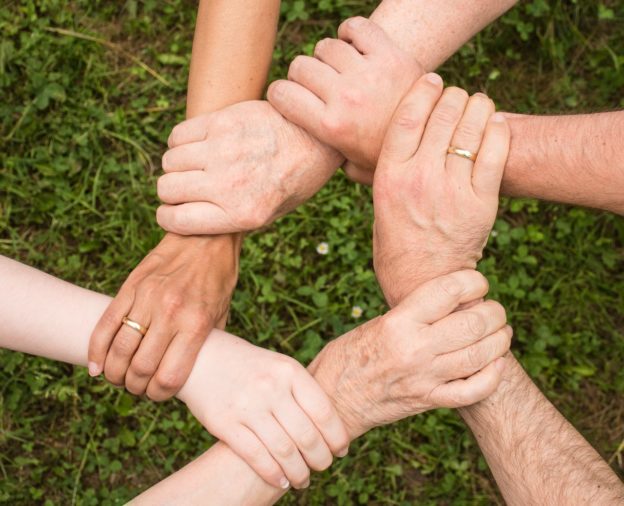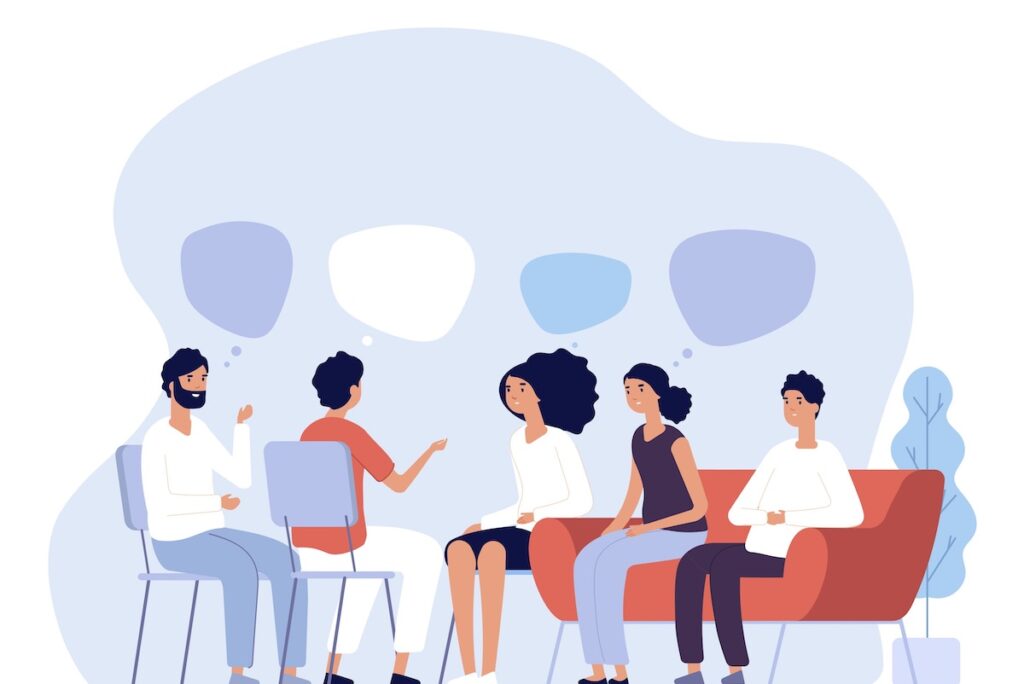Group therapy is a widely utilized and effective approach in the treatment of addiction. It offers numerous benefits that contribute to the recovery process and long-term sobriety of individuals struggling with substance use disorders. Today we will explore the advantages of group therapy for addiction, including emotional support, shared experiences, building a sense of community, and providing a safe and non-judgmental space for individuals to address their addiction-related issues. By examining the scientific evidence and the real-world impact of group therapy, we can better understand its significance in addiction treatment.

Group Therapy for Addiction in West Virginia
Addiction is a complex and challenging issue that affects millions of people worldwide. It has devastating physical, psychological, and social consequences, making it one of the most pressing public health concerns. Effective addiction treatment often requires a multi-faceted approach, and group therapy is a vital component of this strategy.
Group therapy for addiction involves a group of individuals with similar substance use issues coming together to share their experiences, challenges, and successes in a supportive, structured environment. This therapy model has been widely embraced in the addiction treatment community due to its numerous benefits, including emotional support, shared experiences, community building, and the creation of a safe and non-judgmental space for participants. This paper delves into the advantages of group therapy for addiction and examines its role in the treatment and recovery process.
-
Emotional Support
One of the primary benefits of group therapy for addiction is the emotional support it provides. Individuals struggling with addiction often experience feelings of isolation, guilt, and shame. Group therapy offers a safe and empathetic space where participants can share their struggles and receive validation, understanding, and encouragement from peers who have faced similar challenges.
2.1. Reducing Stigma The stigma associated with addiction can be a significant barrier to seeking help. Group therapy helps reduce this stigma by creating an atmosphere of acceptance and understanding. Participants are less likely to judge each other because they share common experiences and vulnerabilities.
2.2. Validation Addiction can make individuals feel like they are the only ones facing these challenges. In a group therapy setting, participants quickly realize that their experiences are not unique. This validation can be a powerful motivator for change, as it helps individuals recognize that recovery is possible.
2.3. Empathy and Connection Group therapy fosters empathy and connection among participants. As they listen to others’ stories and share their own, they develop a sense of belonging and support. The relationships formed in group therapy often extend beyond the sessions, creating a network of individuals who genuinely care about each other’s well-being.
-
Shared Experiences
The process of recovery can be a rollercoaster of emotions and challenges. In group therapy, individuals have the opportunity to share their experiences and learn from others who have faced similar issues.
3.1. Learning from Others Group therapy provides a forum for participants to learn from the experiences and strategies of their peers. They can glean insights into effective coping mechanisms, relapse prevention techniques, and the practical aspects of staying sober.
3.2. Role Modeling Witnessing the success of peers who have overcome addiction can be highly motivating. It serves as a reminder that recovery is possible and achievable. Role models within the group offer inspiration and hope to others who may be struggling.
3.3. Accountability In group therapy, individuals are held accountable for their actions and commitments. Sharing their goals and progress with the group creates a sense of responsibility and encourages participants to stay on track with their recovery plans.
-
Building a Sense of Community
Group therapy sessions provide a unique opportunity to build a sense of community and belonging among participants. This community offers essential support, understanding, and resources for those in recovery.
4.1. Sense of Belonging Addiction can lead to feelings of alienation and disconnection. Group therapy counteracts these feelings by providing a space where participants can form connections and feel a sense of belonging within the group.
4.2. Mutual Aid Participants in group therapy often help each other through challenging times. They become a source of mutual aid, sharing resources, recommendations, and emotional support.
4.3. Social Interaction Skills For some individuals in recovery, addiction may have eroded their social skills. Group therapy helps participants practice healthy social interactions, rebuilding their ability to connect with others outside of the group.
-
A Safe and Non-Judgmental Space
One of the critical aspects of group therapy for addiction is the creation of a safe and non-judgmental environment. This setting encourages individuals to open up, share their experiences, and confront their addiction-related issues without fear of criticism or condemnation.
5.1. Confidentiality Participants are typically required to maintain the confidentiality of what is discussed within the group. This assurance of privacy allows them to speak freely and address sensitive topics without concern about their personal information being disclosed.
5.2. Non-Judgmental Attitude Group therapy facilitators are trained to foster a non-judgmental attitude within the group. This ensures that participants feel accepted and understood, regardless of their past actions or mistakes.
5.3. Emotional Safety In a group therapy setting, individuals can express their emotions and vulnerabilities without fear of ridicule or rejection. This emotional safety is a key factor in addressing the underlying issues contributing to addiction.
-
Scientific Evidence Supporting Group Therapy
The effectiveness of group therapy for addiction is supported by scientific research. Studies have shown that group therapy can lead to improved outcomes in addiction treatment.
6.1. Efficacy in Treating Substance Use Disorders A meta-analysis published in the journal “Addiction” in 2008 found that group therapy is effective in treating substance use disorders. The analysis, which reviewed multiple studies, concluded that group therapy can lead to significant reductions in substance use and improvements in psychological well-being.
6.2. Complementary to Individual Therapy Group therapy is often used in conjunction with individual therapy. While individual therapy addresses personal issues and provides one-on-one support, group therapy offers a complementary environment where individuals can practice and reinforce the skills and insights gained in individual sessions.
6.3. Cost-Effective Treatment Group therapy can be more cost-effective than individual therapy, making it a valuable option for individuals with limited financial resources. This cost-effectiveness ensures that addiction treatment is accessible to a broader population.
Find the Help You Deserve – Group Therapy for Addiction in West Virginia
Group therapy for addiction offers a wide array of benefits, including emotional support, shared experiences, community building, and the provision of a safe and non-judgmental space for individuals in recovery. This therapeutic approach contributes significantly to the addiction treatment and recovery process.
Through validation, empathy, and the opportunity to learn from peers, individuals in group therapy gain a sense of belonging and accountability. Scientific evidence supports the effectiveness of group therapy, further emphasizing its importance in addiction treatment.
Reducing stigma and promoting empathy are critical components of successful addiction recovery. Group therapy serves as a powerful tool in achieving these objectives, helping individuals not only overcome addiction but also rebuild their lives and well-being within a supportive community.










